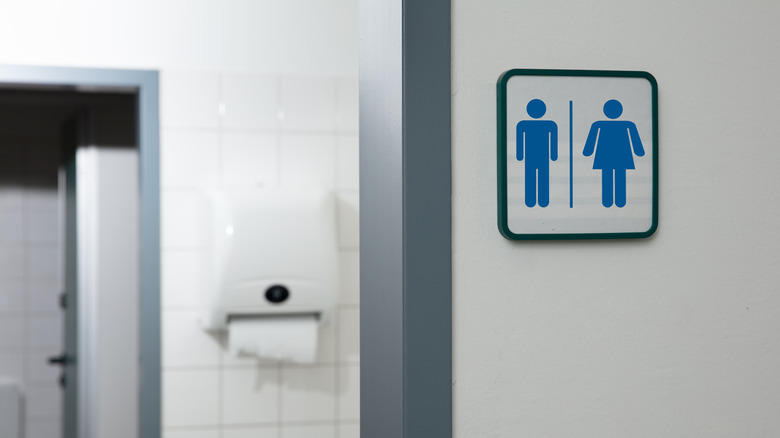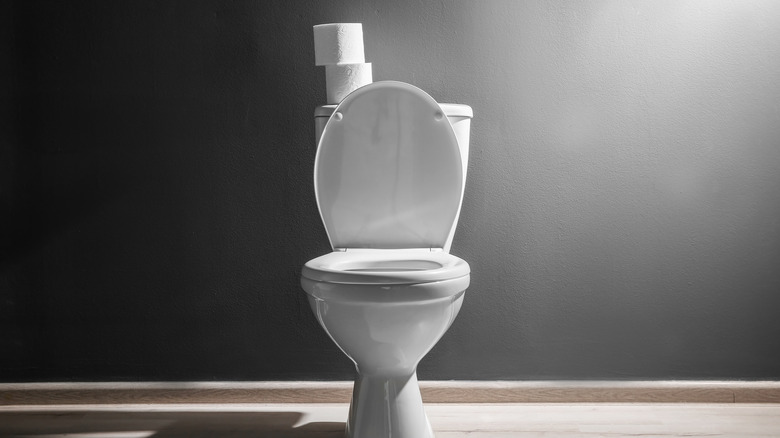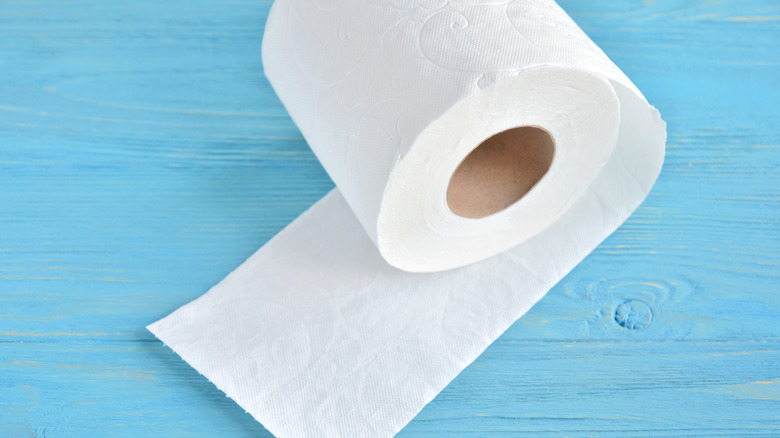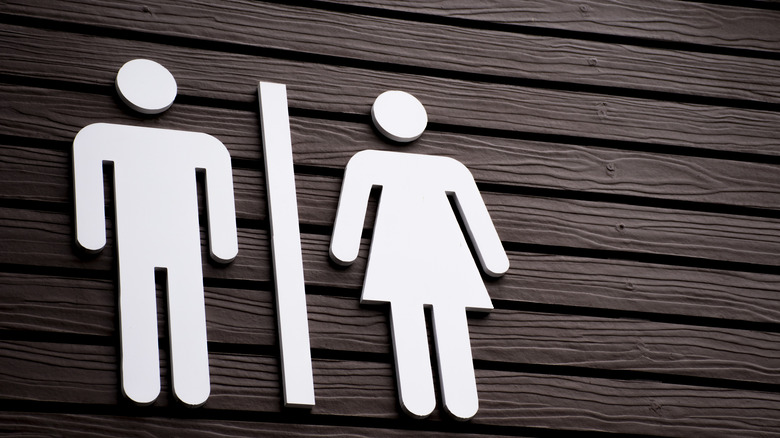What Happens To Your Body If You Hold In Your Poop
Everybody poops, but it's not always convenient to poop when the need arises — such as when you're in a business meeting, while you're sitting in traffic, in the checkout line at Target, out at a restaurant dining with your friends, or teaching a room full of first graders. While waiting for the opportune time to poop is kind of a thing that a lot of people do on a somewhat regular occasion, you might wonder if it's really a bad thing to hold in your poop.
You do have the ability to pick a convenient time to empty your bowels, thanks to a specific muscle located near the anus called the sphincter ani externus (via Britannica). When you're ready to poop, you sit on the toilet, relax the muscle, and the pooping begins. This also means that you can hold off on pooping for awhile, too, until you're not busy, your social situation clears out, or you get home.
Is it bad to hold in your poop?
Problems can arise, though, when you put off your bathroom visit for prolonged periods of time. According to Columbia University's Go Ask Alice, keeping your feces tightly packed away inside for too long can lead to a bevy of uncomfortable (and potentially hazardous) problems.
Basically, if you don't poop when you need to within a reasonable amount of time (several hours or so), you can become constipated. This is because one of your colon's jobs is to absorb water from your stool. The longer you hold your poop inside, your colon stays busy and continues to leach water from your poop the whole time — without any concern for your comfort. By the time you hit the toilet, all that's left are some hard and dry pebbles to try to release into the pot.
Holding in poop can have serious consequences
Constipation is definitely uncomfortable if you experience it every now and then, but it can be downright miserable if it leads to chronic constipation. This condition is heralded by several signs and symptoms — none of which are pleasant in the slightest. Symptoms can include passing fewer than three poops per week, experiencing lumpy or hard stools, working super hard to poop, feeling like you just can't get it all out, feeling like there may be a blockage, or (eep) needing to remove stool from your rectum with your fingers (via Mayo Clinic).
You don't need to experience every single symptom here to qualify for chronic constipation, though — just two or three symptoms over the last three months means you probably have the condition.
The gift of constipation can keep on giving, too. This means you can develop hemorrhoids, which are swollen blood vessels in and around the anus. They're painful, they can be itchy, and they can also bleed.
The problems don't necessarily end there, though.
Your body won't like it if you hold in your poop
If the problem gets bad enough, you can also experience anal fissures. Anal fissures are tiny tears around the anus which can really hurt and can also result in bloody stools. Symptoms of anal fissures include pain when you're pooping, pain after you're done pooping, bright red blood on the toilet paper or in the stool after pooping, a visible tear in the anus, or a small lump or skin tag near the fissure itself (via Mayo Clinic).
And finally, if you withhold pooping on the regular, your anal sphincter can kind of give up and lose its ability to completely relax, which can set up you for further pooping problems. Basically, it can make it hard to physically poop everything you need to get out, which can lead to even more constipation (and everything that unfortunately goes along with it, such as hemorrhoids and anal fissures). It can also lead you to a need to retrain your sphincter, which yes, is a thing (via MedlinePlus).
While pooping can feel like an embarrassing experience in certain situations, it's always best to go as soon as humanly possible. This means that it's a terrible idea to wait a whole day because you're hanging out with friends or don't feel comfortable pooping around your significant other. Pooping is a normal and extremely vital human experience, so don't hold it in — you might eventually regret it.



